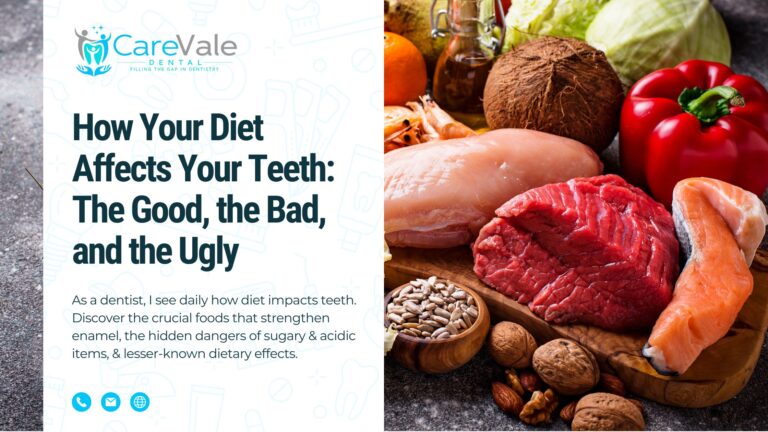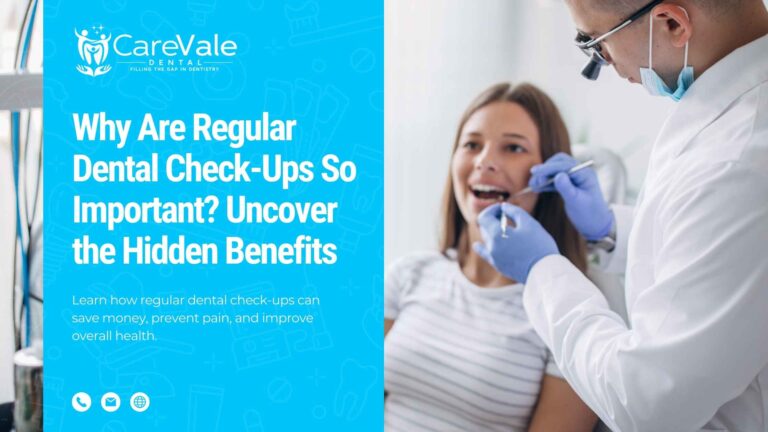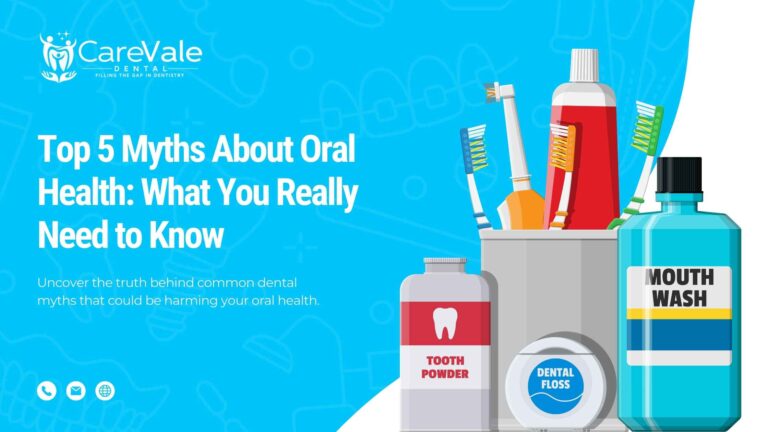Call us: 095083 92120 / Email us: carevaledental@gmail.com

How Often Should You See a Dentist? The Truth About Dental Checkups
When it comes to your health, your mouth deserves just as much attention as your heart or your skin. Yet, many people delay their dental visits, often waiting until there is a serious problem. Today, I want to answer a question I hear every day in my practice: How often should you see a dentist?
The truth is simple. For most people, visiting the dentist every six months is ideal. This is the standard guideline recommended by the Indian Dental Association. However, not everyone is the same. Your oral health, habits, and medical conditions can change how often you should come in.
Let’s dive deeper into how often you really need to visit the dentist—and why regular checkups are far more important than most people realize.
How Often Should You Visit a Dentist by Age?
Children (1-12 years):
Children should visit the dentist every six months, starting by their first birthday. Early visits help catch problems like cavities and ensure their teeth and jaws grow properly.
Teenagers (13-19 years):
Teenagers face unique issues like braces, wisdom teeth, and diet-related cavities. A checkup every six months is necessary, and sometimes even sooner if they wear braces or play contact sports.
Adults (20-59 years):
As adults, our busy lives often push dental care down the priority list. But skipping checkups can lead to hidden issues like gum disease. I recommend a visit every six months to catch problems early, especially if you smoke or have a high-sugar diet.
Seniors (60+ years):
Older adults face risks like dry mouth, worn teeth, and even oral cancer. Regular checkups every six months, or sooner if there are health changes, can help maintain a healthy and comfortable mouth.
Special Groups Who Need More Frequent Visits
Certain groups need to be even more cautious:
- Pregnant women: Hormonal changes can make gums more sensitive and prone to infection. A dental visit every three months is a smart move.
- Smokers: Smoking damages gums and increases the risk of oral cancer. Regular monitoring can prevent serious problems.
- Diabetics: High blood sugar weakens the body’s ability to fight infection, including in the mouth. More frequent visits help protect your teeth and gums.
- Patients with gum disease or weak immune systems: These individuals must see a dentist more often for specialized care and maintenance.
Why Regular Dental Checkups Matter
You might think, “If I brush and floss daily, do I still need to see a dentist?” The answer is yes.
Regular dental visits do much more than clean your teeth. They catch small issues before they become big, expensive problems.
According to the Indian Dental Association, regular checkups can reduce the risk of major dental treatments by up to 70%.
Here’s why these visits matter:
- Early detection: I can find cavities, gum disease, and even signs of oral cancer before you notice symptoms.
- Professional cleaning: Even the best brushing cannot remove hardened plaque (tartar). A simple cleaning can prevent decay and gum disease.
- Protecting overall health: Studies show links between oral health and conditions like diabetes, heart disease, and even pregnancy complications.
Skipping dental visits can mean that a small cavity, which might have been fixed in 15 minutes, turns into a root canal or an extraction later—costing you far more money, time, and discomfort.
Why Many Indians Skip Dental Visits—and Why You Should Not
In India, many people visit a dentist only when they are in pain. The main reasons are:
- Lack of awareness: Many don’t realize dental diseases can quietly worsen without obvious pain.
- Fear: Dental anxiety is real, but modern dentistry offers painless and gentle treatments.
- Cost concerns: People assume dental care is expensive. In truth, preventive care is far cheaper than treatments needed later.
- Accessibility: Rural areas often have fewer dental clinics, making preventive care harder.
Still, even in smaller towns, many dentists like myself offer affordable preventive packages to make regular care possible.
How to Care for Your Teeth Between Visits
While regular checkups are important, good daily habits protect your smile too.
Here’s what I always tell my patients:
- Brush twice a day using fluoride toothpaste.
- Floss at least once a day to remove food and plaque between teeth.
- Limit sugary snacks and beverages.
- Use a fluoride mouthwash if recommended.
- Avoid tobacco products.
- Drink plenty of water to wash away food particles.
Small daily steps, combined with regular checkups, create a powerful defense against dental problems.
Final Thoughts
Regular dental checkups are not just about preventing cavities. They are about protecting your health, your appearance, and your future comfort.
If it has been more than six months since your last visit, I encourage you to book an appointment today. Your future self will thank you.
Frequently Asked Questions
- How often should I visit the dentist if I have no dental problems?
Even without noticeable issues, I recommend a dental checkup every six months. This routine helps in early detection of potential problems and maintains overall oral health.
- Is it necessary to see a dentist during pregnancy?
Yes, hormonal changes during pregnancy can affect your gums, increasing the risk of gum disease. Regular dental visits are important to monitor and maintain oral health during this period.
- Can regular dental checkups help prevent serious health issues?
Absolutely. Regular dental visits can detect early signs of oral diseases, which, if left untreated, may contribute to more serious health conditions like heart disease and diabetes.
- Are dental checkups important for children?
Yes, starting dental visits early helps in monitoring the development of teeth, instilling good oral hygiene habits, and preventing cavities and other dental issues.
- What are the risks of skipping regular dental checkups?
Neglecting regular dental visits can lead to undetected cavities, gum disease, and other oral health issues, potentially resulting in more complex and costly treatments later on.




